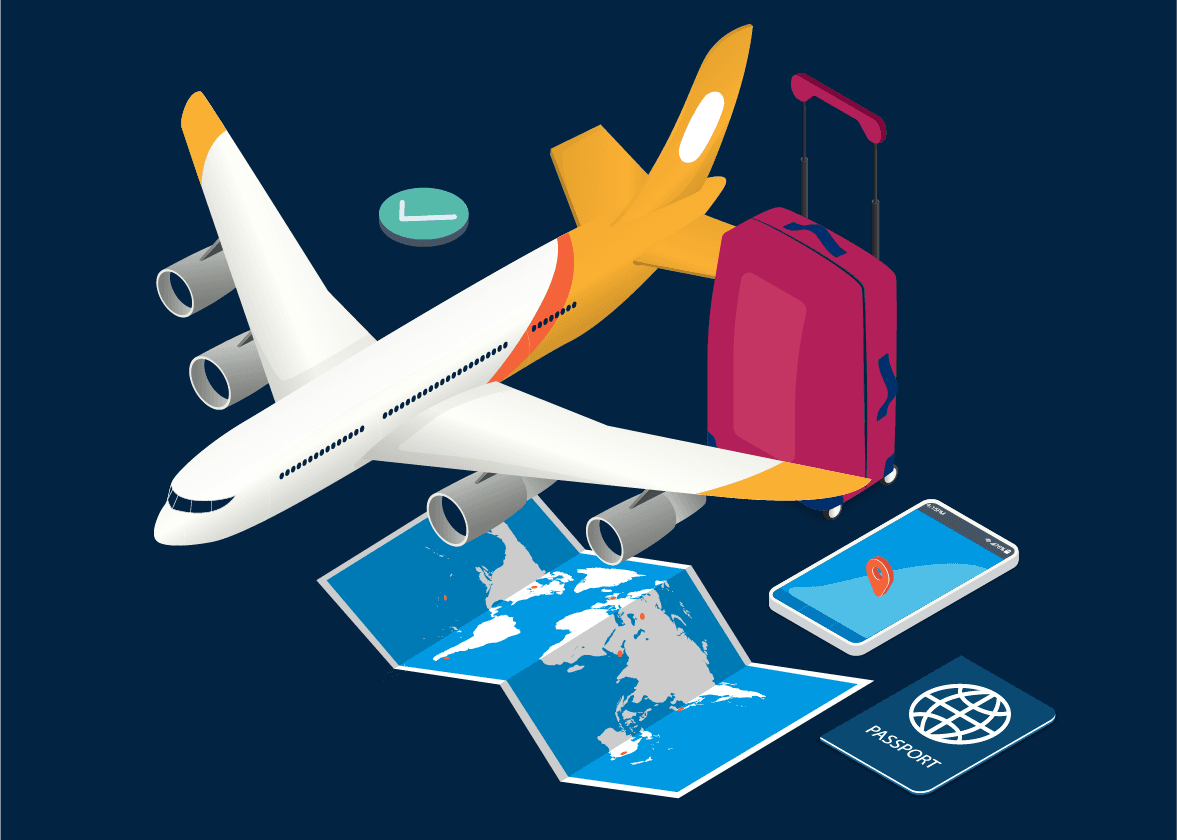Domestic flights, car rentals, and hotel spend all see double- or triple-digit growth over Q4 2022; international flights maintain volume after a large jump in Q4.
- Spend on air travel is up 85% domestically and 285% internationally YoY
- Car rental spend is up 50% over Q1 2022, with trips averaging 6 days
- Spend on hotel reservations is up 59% YoY, averaging 4.39 nights per stay
Emburse processes more than $80 billion per year in employee expenses, invoices, and card payments. In each of our SpendSmart reports, we analyze this data to determine trends and patterns across a broad spectrum of business spend categories.
Emburse's quarterly SpendSmart Travel Trends report provides a view into how much organizations spend on travel, as well as trends for booking volume and trip length. This analysis compares travel volume and cost in the Q1 (January-February-March) period from 2019 to 2023, and is based on booking transactions within the U.S. (or originating from, for international air travel)
Despite news that organizations are tightening their belts, the Q1 2023 data shows that these macroeconomic concerns have not dampened the momentum of the business travel industry. The number of domestic and international flights, hotel and car rentals, and spend across the board all increased as industry events like CES returned in full and executives sought a sense of normalcy in the new year. While international flight volume only grew by 1% against last quarter, that follows a 998% annual increase in the quarter prior, indicating that organizations are continuing to spend on international travel.
Air Travel
In Q1 2023, domestic flight transactions saw a 52% increase over the same quarter in 2022 and a 29% increase over Q4 2022. Similarly, companies spent 85% more on domestic air travel in Q1 2023 than in Q1 2022 and 42% more than in Q4 2022.
International travel bookings saw a 178% increase over the same quarter of 2022, but only a 1% increase from Q4 2022. New restrictions on travelers from China have some worried about the recovery of international travel, which may have impacted the small quarter-over-quarter increase. However travelers are still spending more on international air travel: spend is up 285% over Q1 2022, and 21% increase over Q4 2022.
Car Rental
In Q1 2023, car rentals for business trips increased by 53% over Q1 2022 and by 22% over Q4 2022. Car rental durations averaged 6 days per trip, reflecting a 50% increase over the same quarter last year.
Spend on car rentals for business trips was up 60% over Q1 2022. The average rental was $249.82 per trip, which is only 5% over the same quarter last year and a 1% drop from Q4 2022.
Hotel
In Q4 2022, business travelers averaged 4.39 nights per hotel stay. This reflects a 40% increase in trip length over the same quarter in 2022 and a 6% increase in trip length compared to Q4 2022. The number of hotel reservations is up 49% over Q1 2022 which is a 5% bump over the previous quarter.
The average nightly spend on hotels for business trips was $142.82, compared to $187.94 in Q1 2022. Spend on reservations overall was 59% higher than the previous year and 11% higher than Q4 2022. The CEO of Hilton made a comment in February 2023 that he is not interested in dropping rates to increase occupancy, instead focusing on “the best bottom line results for [hotel] owners.” If other hotel leaders take the same approach, we may see spend continue to increase at a rapid rate.
We will continue to monitor these figures and report how they evolve quarterly. An infographic for this quarter's SpendSmart Travel Trends report can be downloaded here.
Methodology
The data in the Emburse Business Travel Index represents over 140,000 individual transactions made by travel management companies using Emburse’s expense management platform for business travel expenses. It reflects the months of January, February, and March collectively (Q1) for the years 2019, 2020, 2021, 2022, and 2023.
